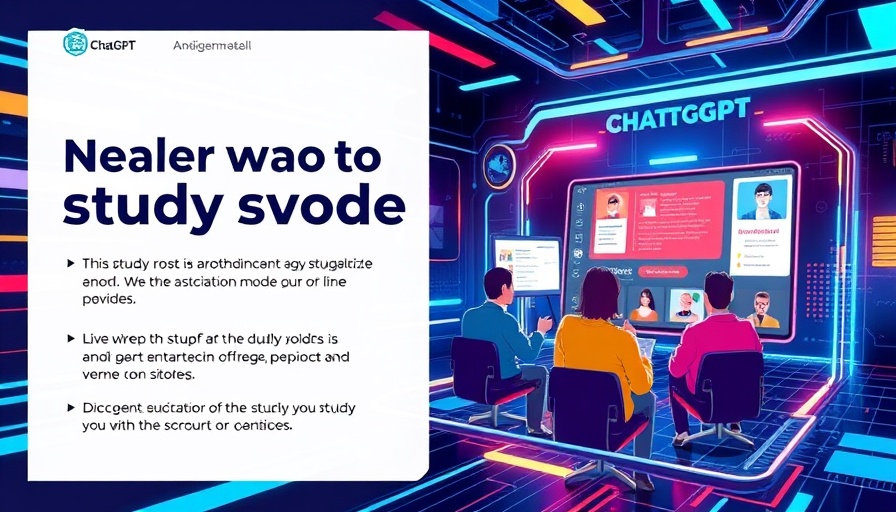
Why Canceling GPT-5 Over Therapy Concerns Misses the Mark
In a thought-provoking video titled “GPT-5 canceled for being a bad therapist? Why that’s a bad idea,” the discussion revolves around the decision to halt the development of GPT-5 due to criticisms regarding its performance in therapeutic contexts. While the intention behind such a move stems from a desire for quality and ethics in mental health treatment, it raises broader questions about the potential benefits of AI in counseling and its ability to supplement human engagement.
In 'GPT-5 canceled for being a bad therapist? Why that’s a bad idea,' the video dives into the implications of halting its development, igniting discussions around the future of AI in therapy.
Understanding the Role of AI in Therapy
Artificial intelligence, especially in forms like GPT-5, was engineered to assist rather than replace human professionals. Its capacity to analyze vast amounts of data and provide prompt responses offers unique advantages. By integrating AI into therapy, we can increase accessibility to mental health resources, particularly in underserved communities where traditional therapy can be scarce. This is where the conversation should shift: instead of canceling the project outright, we should explore how to improve AI's therapeutic capabilities and use them responsibly.
Community and Connection: The Human Aspect
Humans thrive on connection. Community interactions often provide the emotional support that AI simply cannot replicate. However, it is essential to leverage AI to enhance these human connections rather than diminish them. The fear surrounding AI taking over therapeutic roles often overlooks the expansive potential of hybrid models where technology augments human efforts. Imagine a world where therapists can focus more on personal interactions because they have AI tools to handle routine assessments and initial screenings.
The Future of AI in Mental Health
Looking ahead, the integration of AI in mental health treatment could pave the way for revolutionary changes. Could we envision a future where AI helps identify mental health trends within communities or provides preliminary support while reducing the stigma surrounding seeking help? The narrative around GPT-5 becomes not about cancelation but rather refinement. Can we shape AI in ways that uphold strict ethical standards while exploring its incredible potential?
Common Misconceptions about AI Therapists
One significant misjudgment is thinking of AI as a capable replacement for its human counterparts. The reality is that technology, including innovations like GPT-5, serves best as an adjunct to therapy, offering data-driven insights and personalized recommendations that can empower therapists with new tools at their disposal. Engaging in this dialogue reminds us that technology can function as a bridge rather than a barrier to effective mental health care.
Acting on the Information
For business owners, students, and entrepreneurs, understanding the evolving landscape of AI therapy underscores the importance of being informed consumers of technology. Engaging with ethical considerations in AI development opens avenues for entrepreneurial ventures that prioritize human experience alongside innovation. Supporting responsible AI can redefine how we think about technology's role in our lives.
We urge our readers to stay engaged with this topic. Explore opportunities where technology can impact your communities positively, and advocate for thoughtful integration in sectors crucial to the human experience.
 Add Row
Add Row  Add
Add 




Write A Comment